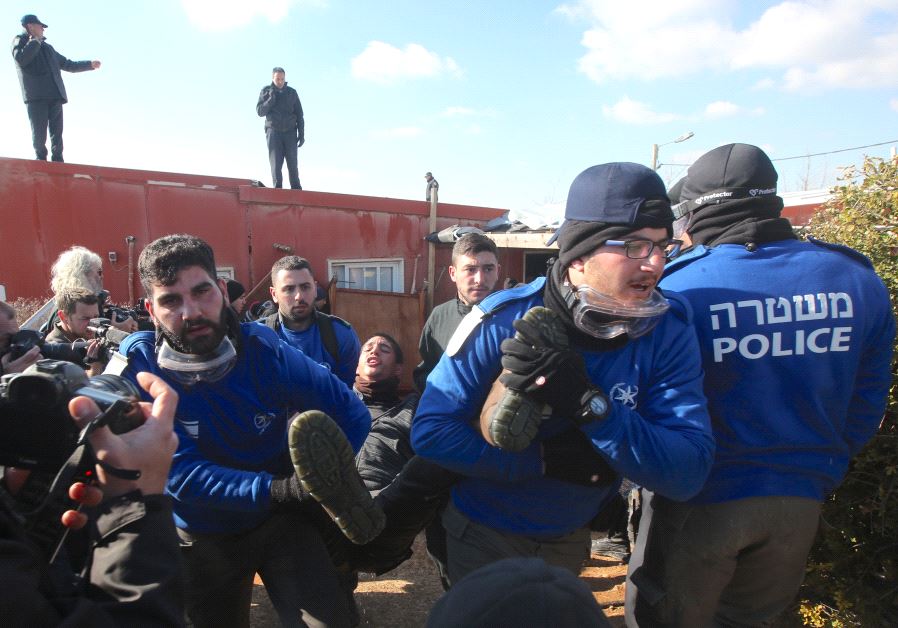Security forces complete Amona evacuation as synagogue standoff ends
Police remove residents who had locked themselves into the outpost's synagogue for hours in protest of the evacuation.
 Forces evacuate Amona synagogue(photo credit: MARC ISRAEL SELLEM/THE JERUSALEM POST)Updated:
Forces evacuate Amona synagogue(photo credit: MARC ISRAEL SELLEM/THE JERUSALEM POST)Updated: